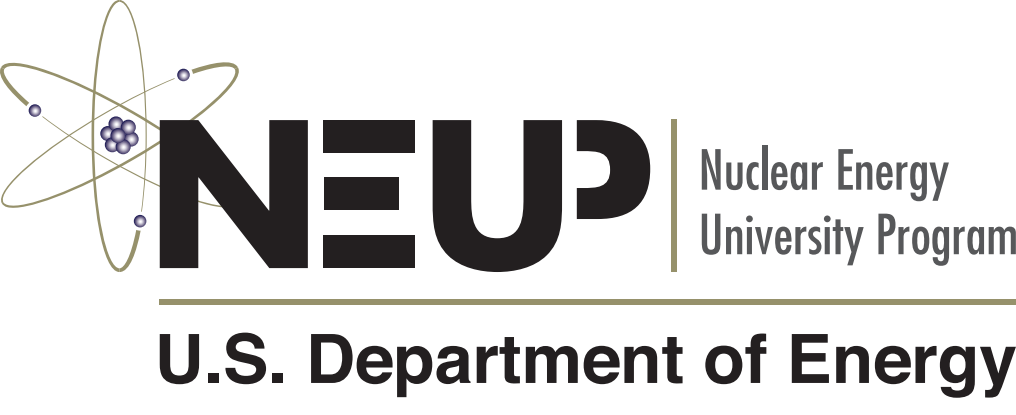Title
|
Distinguished Faculty
|
Institution
|
Estimated Funding
|
Project Description
|
|
|
North Carolina State University
|
|
$625,000
|
The objective is to establish and enhance the predictive credibility of data-driven Scientific Machine Learning (SciML) for nuclear applications through rigorous uncertainty quantification of SciML models to establish confidence, as well as deep generative learning to address the data scarcity issue. The project will augment the applications of SciML in nuclear energy (NE) scientific computing and prepare the students for transformative solutions across various DOE missions through six education and three leadership thrusts areas.s.
|
|
|
|
|
$625,000
|
This proposal aims to develop a framework based on data-driven methods to integrate thermal hydraulics experimentation and simulation. The framework will result in a fast response multiscale data engine for efficient transient analysis for advanced nuclear reactors. The proposed framework will support molten salt reactor development through applications on heat exchanger optimization, transient analysis, and risk-informed analysis to demonstrate its applicability.
|
|
|
|
|
Rensselaer Polytechnic Institute
|
|
$625,000
|
Vibrational perturbations in nuclear reactors lead to perturbations in the static neutron flux. In order to identify the location and type of vibration, special computational tools are needed to simulate their effects on the flux. Such simulations are often done in the frequency domain, and the solution is therefore a complex quantity. This project aims to transform understanding of these perturbations through advancing current Monte Carlo methods to simulate these phenomena.
|
|
|
|
University of Illinois at Urbana-Champaign
|
|
$625,000
|
Graphite dust poses a challenge to graphite-moderated reactors, acting as a mobile source term and impediment to heat transfer. This project will develop a new capability for Lagrangian particle tracking methods in MOOSE. These numerical methods will be deployed to a multiscale full primary loop model of a pebble bed reactor using Pronghorn and SAM, in order to explore key questions regarding graphite dust transport physics, operations and maintenance strategies, and source term.
|
|

